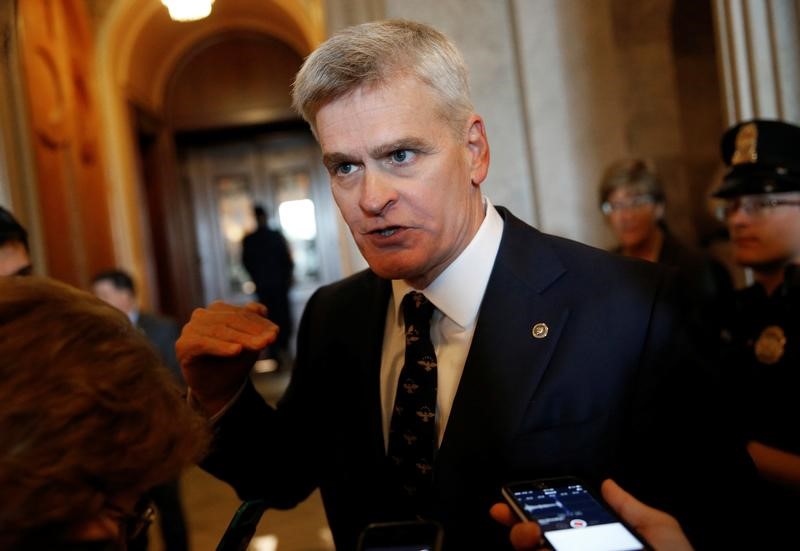WASHINGTON (Reuters) - A new Republican bill to replace Obamacare will be unveiled in the U.S. Senate on Monday with backing from President Donald Trump, according to one of two Republican senators who have crafted the legislation.
The lawmaker, Senator Bill Cassidy of Louisiana, told reporters he was optimistic the legislation could pass before a Sept. 30 deadline, if it can attract the bare minimum of 50 votes needed to succeed in the Republican-led Senate with tie-breaking support from Vice President Mike Pence.
The bill, which Cassidy is sponsoring with Senator Lindsey Graham of South Carolina, could revive Republican hopes of overturning the Affordable Care Act weeks after their last attempt on July 28 came up one vote short in a humiliating defeat for Trump and Senate Republican leader Mitch McConnell.
The new measure, which would give more healthcare powers to the states, is a revamped version of legislation that did not gain enough support during the summer healthcare debate.
"Mitch has said that if we get 50 votes, he'll hold a vote. I can tell you that the president's all about it," said Cassidy, noting the bill had also drawn some favorable comment from a key July 'no' vote, Republican Senator John McCain of Arizona.
Some Senate Republicans doubt there will be a successful last-ditch effort this year to replace former Democratic President Barack Obama's signature healthcare law.
"It is not easy to get 50-plus-one (votes). Everybody's kind of got another idea. But I'm open to it," said Senate Majority Whip John Cornyn, the chamber's No. 2 Republican.
Cassidy said the legislation has had fulsome support from White House officials including Pence, who he said had sought to rally the support of state governors.
Graham and former Republican Senator Rick Santorum have held discussions with the conservative House Freedom Caucus, which played a key role in getting an Obamacare repeal bill through the House of Representatives earlier this year.
If approved in the Senate, the bill would need to be reconciled with the House legislation. Both chambers would then need to vote a second time.

Since Democrats oppose repealing Obamacare, Republicans need to use a parliamentary procedure known as reconciliation to move healthcare legislation on a simple majority through the Senate, which they control by a 52-48 margin. The tool that allows reconciliation is contained in a 2017 budget resolution that will expire with the fiscal year on Sept. 30.